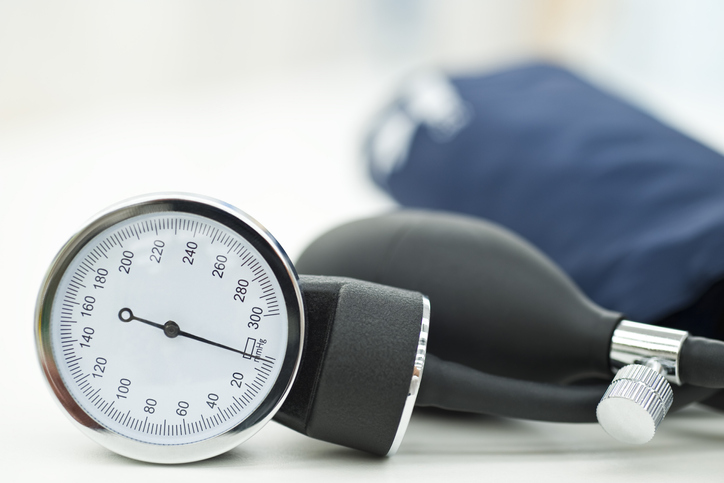Discrimination a Risk Factor For Hypertension?

By Joy Stephenson-Laws, JD, Founder
According to a recent statement from the Centers for Disease Control and Prevention (CDC), one in two adults in the United States is affected by hypertension (high blood pressure).
“This condition, also known as the ‘silent killer,’ increases your risk of heart disease and stroke,” reports the CDC.
Hypertension particularly plagues the black community.
The CDC reports that hypertension is more common in non-Hispanic black adults (54%) than in non-Hispanic white adults (46%), non-Hispanic Asian adults (39%) or Hispanic adults (36%).
“The prevalence of high blood pressure (HBP or hypertension) in African-Americans in the United States is among the highest in the world. More than 40 percent of non-Hispanic African-American men and women have high blood pressure. For African-Americans, high blood pressure also develops earlier in life and is usually more severe,” reports the American Heart Association).
Furthermore, hypertension disproportionately affects black males.

There are many theories as to why hypertension more commonly affects black people. Generally speaking - Is it genetics? Is it lifestyle? Is it economics? These are all possible factors, however, one that you may have not considered is discrimination.
A recent study found, “Black participants who reported lifetime discrimination had a 35% increased risk of hypertension, even after accounting for age, income, education, body mass index, physical activity and other factors,” according to this recent Medical Xpress report discussing the study.
The study involved 3,297 black, Hispanic, Chinese and white adults (ages 45 to 84). At the beginning of the study, none of these adults suffered from hypertension. Participants were asked to report both experience of lifetime and daily discrimination.
Lifetime discrimination included factors such as being denied a promotion or having neighbors that made life difficult. Daily discrimination included factors such as generally being treated with less respect or experiencing harassment.
After almost two decades, nearly half of the participants developed high blood pressure.
“Overall, the study found Black people reported the highest levels of discrimination. About 65% reported lifetime discrimination compared to 42% of Hispanic people, 40% of white people and 23% of Chinese people. Black people most often attributed the unfair treatment to race, whereas white people by far attributed it to non-racial factors such as age, sex or religion,” reports Medical Xpress.
“Hispanic and Chinese people were about evenly split between feeling the discrimination was motivated by race versus other factors.”
And as mentioned, black participants who said that they experience lifetime discrimination, had a 35% increased risk of hypertension.
More research is needed and we can’t ignore other contributing factors such as lifestyle and access to fresh produce (although this can be considered a from of discrimination), but I really want people to understand the severity of this problem. Racial discrimination, of course, is horrible, but I don’t think people overall acknowledge how stressful and detrimental it can be to one’s health.
"Health professionals should look beyond traditional risk factors, such as diet and physical activity, and acknowledge discrimination as another risk factor," said Allana T. Forde, a researcher at the National Institutes of Health's National Institute on Minority Health and Health Disparities, who was referenced in the Medical Xpress report.
Be proactiveWe must be proactive about lowering the rates of hypertension among all adults in the United States.
You can conveniently monitor your blood pressure at home. For instructions and guidelines on how to properly do this, check out this pH Labs blog. For a simple chart on blood pressure readings that will tell you if your blood pressure is normal or too high, read here.
Eating healthily is important when it comes to preventing hypertension. One of the reasons why millions of Americans currently have high blood pressure is a diet rich in unhealthy fats, sugar and processed foods. The good news is diet is something you can improve. Along with eating junk foods and sweets in moderation, make sure you are getting an adequate intake of these 7 nutrients that may help fight hypertension. And as always, take a comprehensive nutrient test to ensure you have the right balance of nutrients, like magnesium and potassium. These are examples of nutrients which directly affect your ability to maintain a healthy blood pressure.
For additional tips on how you can help prevent or better manage hypertension, check out these pH Labs blogs.
Enjoy your healthy life!
Disclaimer: This article is not intended to provide medical advice. Please consult with your doctor or another competent healthcare practitioner to get specific medical advice for your situation.
The pH professional health care team includes recognized experts from a variety of health care and related disciplines, including physicians, attorneys, nutritionists, nurses and certified fitness instructors. This team also includes the members of the pH Medical Advisory Board, which constantly monitors all pH programs, products and services. To learn more about the pH Medical Advisory Board, click here.







